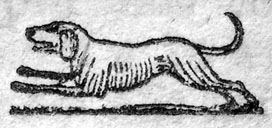Just read the first chapter of the 9/11 Commission Report, which is pretty unputdownable. Full of things I didn’t know. For instance, just five minutes before American 11 crashed into the North Tower, passengers in coach were still “under the impression that there was a routine medical emergency in first class” (6). The probable twentieth hijacker wasn’t Zacarias Moussaoui but someone stopped by an immigration officer in Orlando in August (11). As recently as May 2003, NORAD was wildly exaggerating the advance notice it had received of the hijackings; the embarrassing truth is that they scrambled fighter planes because three-quarters of an hour after American 11 crashed, they believed it was still airborne and headed toward Washington, D.C. (34).
And on page 41, though the phrasing is diplomatic, the commission seems to have caught Bush and Cheney out in a lie. Cheney and Bush recall that in a telephone call that took place shortly after Cheney reached a shelter conference room, Bush “authorized the shootdown of hijacked aircraft” (40). Rice and a military aide remember a call that would correspond to the one Bush and Cheney describe. But as the commission delicately notes,
Among the sources that reflect other important events of that morning, there is no documentary evidence for this call, but the relevant sources are incomplete. Others nearby who were taking notes, such as the Vice President’s chief of staff, Scooter Libby, who sat next to him, and Mrs. Cheney, did not note a call between the President and Vice President immediately after the Vice President entered the conference room (41).
The timing of the purported call is wrong, too. Based on other evidence, the commission estimates that Cheney entered the shelter conference room at 9:58 am. Between 10:10 am and 10:18, a military aide told Cheney (erroneously, as it happens) that United 93 was 80 miles, then 60 miles away from Washington. Cheney replied to these alerts by twice issuing the order to shoot down the incoming airliner. White House Deputy Chief of Staff Joshua Bolten then “suggested that the Vice President get in touch with the President and confirm the engage order.” This call, documented by Scooter Libby’s notes, the White House’s telephone log, and by notes kept by Ari Fleischer while on board Air Force One with Bush, took place between 10:18 am and 10:20 am.
It’s possible that there was a call between Bush and Cheney “sometime before 10:10 and 10:15,” as the commission politely estimates (40). But if so, why did it go undocumented? To put it another way, how likely is it that the call issuing the order would go undocumented and the later call confirming the order would be documented by three different notetakers? It seems far more likely that Cheney authorized the shootdown on his own, and Bush backed him up on it after the fact. The only perplexity is why they would have felt the need to camouflage this chain of command.

